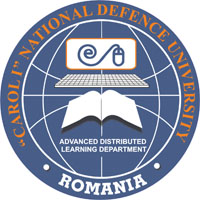WIRIS VERSUS GEOGEBRA: LMS INTEGRATION PERSPECTIVE
WIRIS VERSUS GEOGEBRA: LMS INTEGRATION PERSPECTIVE
Author(s): Cosmin HERMAN, Stefan POKASubject(s): Education
Published by: Carol I National Defence University Publishing House
Keywords: Wiris; Geogebra; Moodle; online quizzes; evaluation; elearning
Summary/Abstract: In the 21st century it is hard to imagine a classroom that does not have to take into consideration the role of academic technology in the process of teaching, learning and the evaluation. Obviously, there is no mathematics software that suits to everyone; this paper keep an eye on two of them we are comfortable with: WIRIS and Geogebra. The two software may be used for all levels of education that join algebra, geometry, graphing, statistics and calculus. WIRIS has a Math Editor, both WIRIS and Geogebra have a CAS system, but no one has the means to keep records of students work/performance. Fortunately for math teachers WIRIS is integrated into a LMS, which is Moodle in our case, and Geogebra files can be loaded in Moodle too. Basically to get an interactive file with Geogebra, means to create an applet, so working with scripting can not be avoided. There are many authors of applets all around the world, applets are shared on Geogebratube, but the "Construction Protocol" of them are not always shown. On the other hand writing an algorithm in WIRIS is much, much easier. The evaluation process flows easily for students, parents and teachers with WIRIS QUIZES by using variables in the process of the writing algorithms that are generating a new problem at every attempt. Our paper contains a package of lessons created by WIRIS and Geogebra as integrated software in MOODLE. The lessons package can prove how interactive technology enables us to provide requisite knowledge, develop critical thinking skills and stimulate natural curiosity, all of these in the benefits of students in their efforts of pursuing success.
Journal: Conference proceedings of »eLearning and Software for Education« (eLSE)
- Issue Year: 11/2015
- Issue No: 01
- Page Range: 630-637
- Page Count: 8

